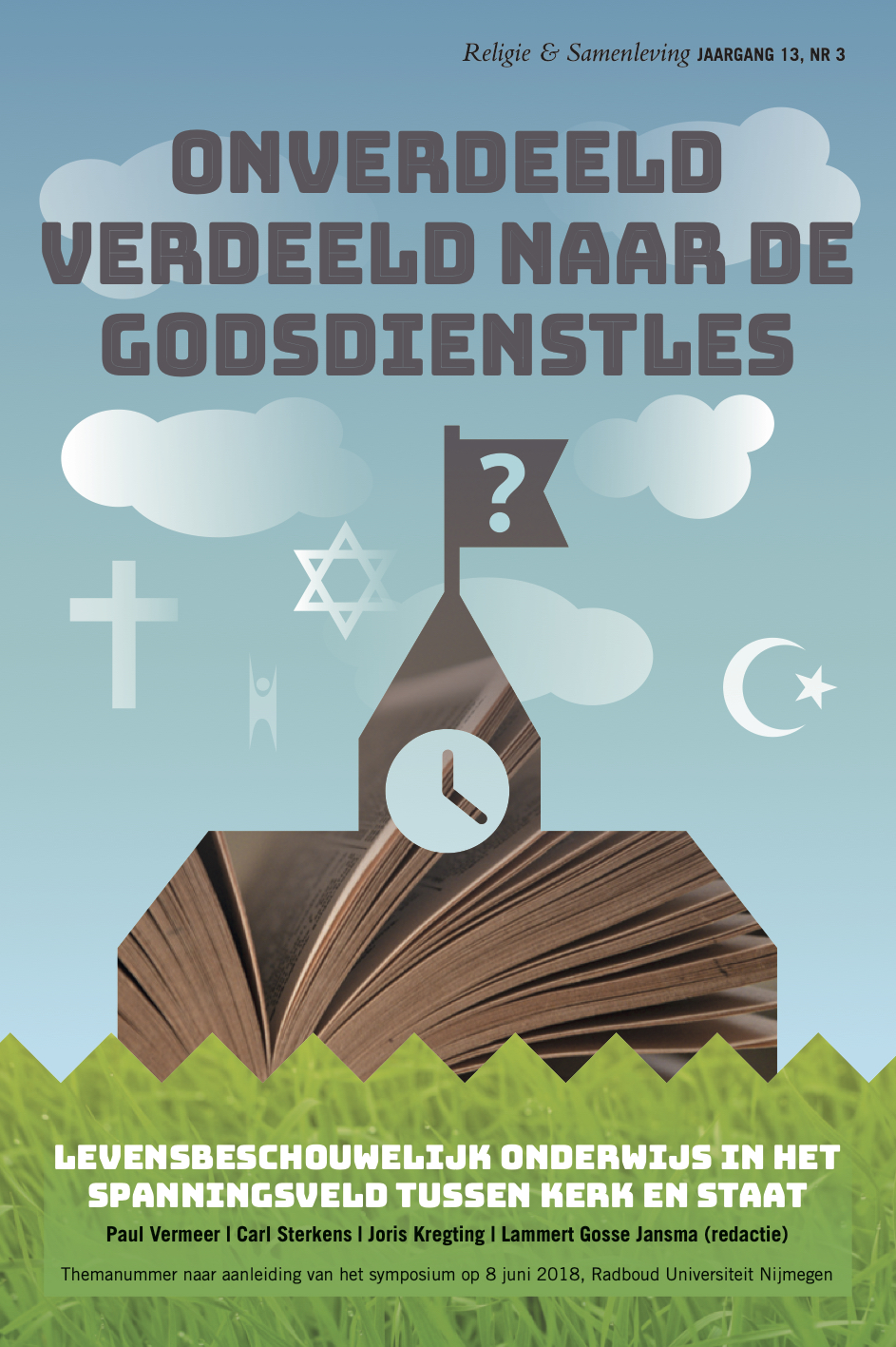Het buitenperspectief maakt vrij
Over nut, noodzaak en mogelijkheid van neutraal, niet-confessioneel onderwijs over religie, levensbeschouwing en ethiek voor iedereen
DOI:
https://doi.org/10.54195/RS.11830Samenvatting
Many countries have a tradition of confessional religious education. As a consequence neutral, non-confessional education based on the academic discipline of the study of religion is almost absent in many primary and secondary schools. This is also the case in the Netherlands and Belgium. This is a failure. One of the most important reasons why the state is involved with education is to guarantee each children’s right to an open future. The first task of education is not to confirm the religious background of the pupils and their parents (teaching into religion), but to inform students and to put their religious background in a broader, historical and critical outsider’s perspective (teaching about religion). This is the main reason why neutral education about religions, worldviews and ethics should be part of everyone’s school curriculum: that kind of education is not against the freedom of religion and conscience but is an important precondition for that freedom. This article formulates a concrete proposal to introduce an independent course about religion, ethics and citizenship in all schools for all students. And after reviewing some critiques to this proposal, we conclude that neutral, non-confessional education about religion is not only necessary but also possible and feasible.




